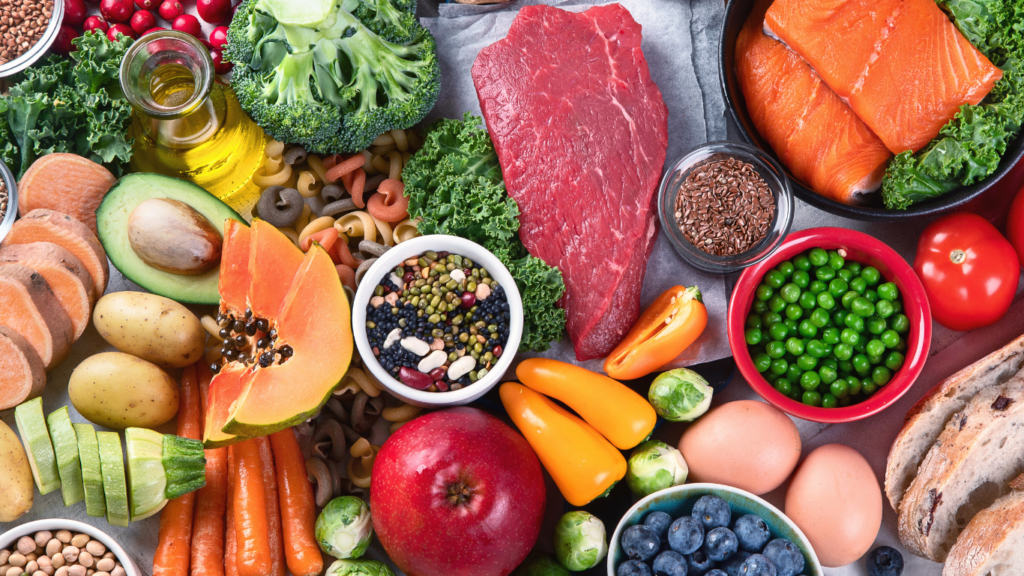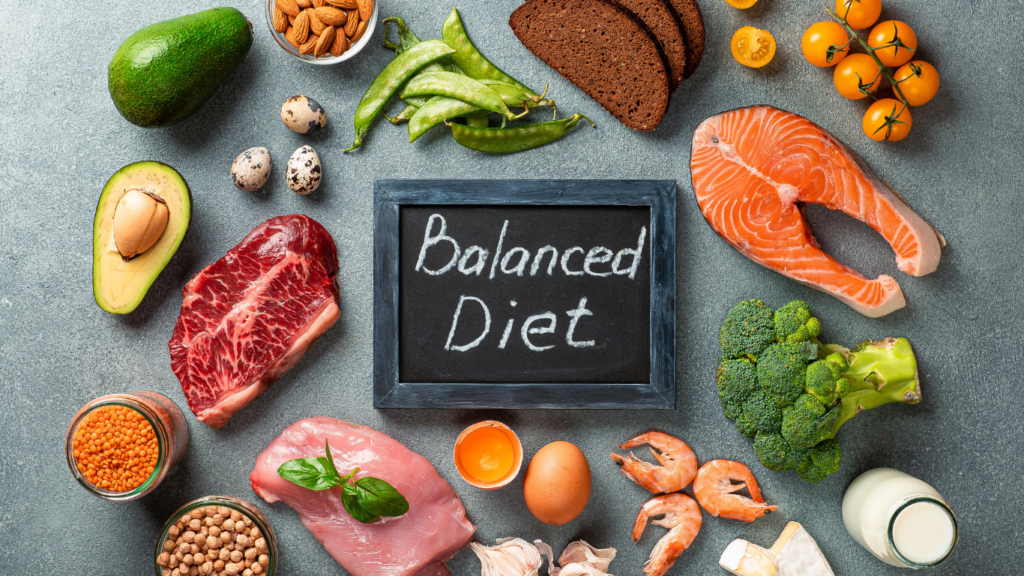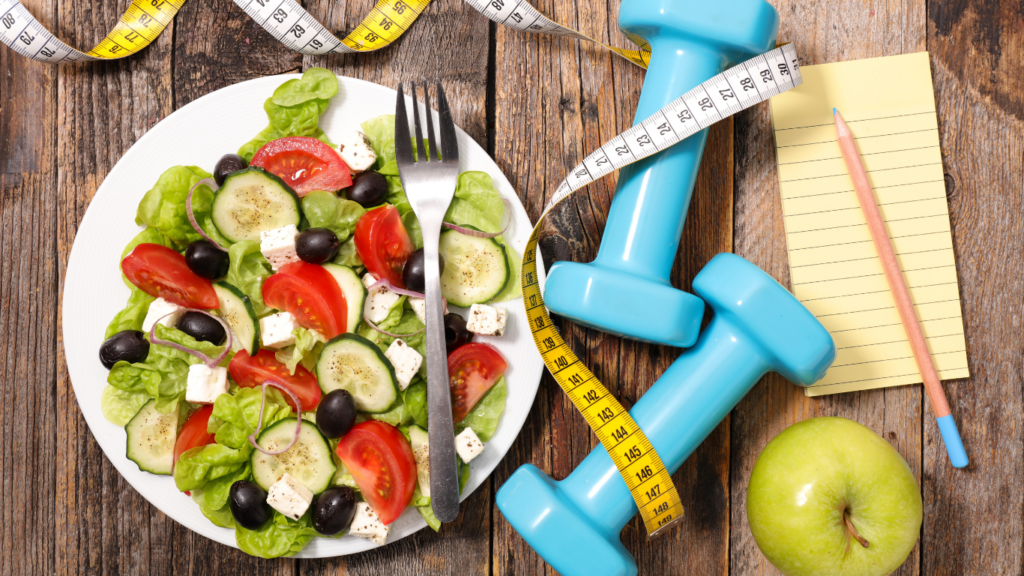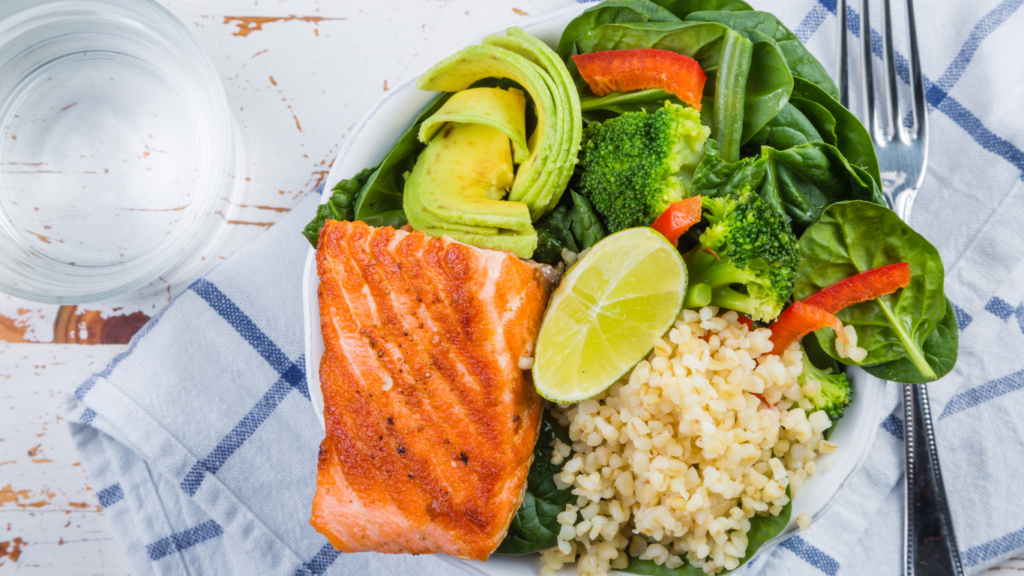Understanding The Link Between Nutrition And Athletic Performance
Optimal nutrition directly supports athletic performance by enhancing energy levels and recovery times. Nutrients like carbohydrates, proteins, and fats fuel the body during physical activity, with carbohydrates serving as the primary energy source for endurance-focused activities like cycling or running. Depleted glycogen levels, which result from inadequate carbohydrate intake, reduce stamina during prolonged exercise.
Proteins repair muscle tissues and aid recovery after intense workouts. For strength-based training, consuming sufficient amounts of high-quality protein sources—like lean meats, eggs, or legumes—promotes muscle repair and growth. Fats act as a secondary energy source, particularly during extended low-intensity exercises such as hiking.
Hydration also plays a critical role in performance. Even a loss of 2% of body weight through sweat can impair endurance and cognitive function. Athletes benefit from integrating electrolyte-rich beverages or water into their routines to prevent dehydration, especially during high-intensity sessions or hot weather conditions.
Micronutrients, including iron and magnesium, further enhance endurance. Iron facilitates oxygen transport in the blood, while magnesium is involved in muscle contractions and energy production. deficiencies in either can result in fatigue, reducing overall performance.
By tailoring dietary plans to activity type and duration, athletes maximize performance and recovery, ensuring consistency in training and competition.
Key Nutrients For Boosting Endurance And Stamina
Athletic endurance and stamina rely heavily on specific nutrients to fuel the body, repair muscles, and maintain overall health. Each nutrient contributes uniquely to performance, making a balanced intake crucial for athletes.
Carbohydrates: The Primary Fuel Source
- Carbohydrates provide the energy needed for sustained physical activity.
- During high-intensity workouts or endurance sports, the body breaks down glycogen, a stored form of carbohydrates in muscles and the liver.
- Consuming 6-10 grams of carbohydrates per kilogram of body weight daily supports glycogen stores, preventing fatigue.
- Foods like whole grains, fruits, vegetables, and sports drinks supply quick and sustained energy.
Proteins For Recovery And Strength
Proteins aid in muscle repair after exercise, reducing recovery time and enhancing strength. A daily protein intake of 1.2-2.0 grams per kilogram of body weight, adjusted to the activity’s intensity, helps athletes rebuild muscle fibers. Lean meat, eggs, dairy products, beans, and protein shakes are effective sources, ensuring essential amino acids for recovery.
Fats As A Sustainable Energy Source
Fats serve as a secondary energy supply during prolonged, lower-intensity activities. They help preserve carbohydrate stores, delaying fatigue in endurance exercises. Athletes benefit from 20-35% of their total energy intake coming from fats, primarily unsaturated sources like nuts, seeds, avocados, and fatty fish. Omega-3 fatty acids, found in salmon and chia seeds, also reduce inflammation.
Role Of Vitamins And Minerals
Vitamins and minerals regulate oxygen delivery, muscle contractions, and energy metabolism. Iron supports red blood cell production, improving oxygen transport, while magnesium aids muscle function and prevents cramps. Vitamin D and calcium strengthen bones, critical for weight-bearing activities. Foods like spinach, almonds, oranges, and fortified cereals ensure adequate intake, with supplements addressing verified deficiencies.
Hydration And Its Critical Role In Stamina
Hydration maintains optimal physical and mental performance during endurance activities. Losing just 2% of body weight through sweat can reduce stamina, impair thermoregulation, and weaken focus. This loss occurs even faster in hot or humid conditions, making hydration essential for athletes.
Electrolytes balance fluids and prevent dehydration-related problems like muscle cramps or fatigue. Sodium, potassium, and magnesium help replenish what’s lost in sweat. For example, sports drinks containing these electrolytes are effective during prolonged or intense exertions.
Fluid needs vary based on exercise intensity, duration, and environmental factors. An athlete engaging in moderate workouts for an hour might need 16-20 ounces of water, while a marathon runner could require 8-10 ounces every 15-20 minutes. Monitoring urine color helps gauge hydration status; pale yellow indicates proper hydration.
Overhydration can also harm performance. Drinking excessively without sodium replacement dilutes blood sodium levels, causing hyponatremia. Stick to hydration strategies tailored to your exercise conditions and body’s needs.
Common Nutrition Mistakes Athletes Should Avoid

Avoiding critical nutrition mistakes helps athletes optimize endurance and stamina. These errors can lead to decreased performance, poor recovery, and increased risk of fatigue or injury.
Neglecting Carbohydrate Intake
Carbohydrates are the primary energy source for endurance activities. Many athletes underconsume them, which leads to depleted glycogen stores and early fatigue during prolonged exercise. For high-intensity training, I recommend 6-10 grams of carbohydrates per kilogram of body weight daily.
Insufficient Protein Consumption
Adequate protein is necessary for muscle repair and recovery. Athletes often overlook their protein intake or consume it sporadically, which slows recovery and weakens muscle adaptation. Incorporating 1.2-2.0 grams of protein per kilogram of body weight each day improves recovery rates.
Skipping Pre-Workout Meals
Skipping meals before training reduces energy availability, causing early exhaustion. Consuming a balanced meal 3-4 hours before exercise and a small carbohydrate-rich snack 30-60 minutes prior ensures sustained energy levels during workouts.
Ignoring Hydration Strategies
Dehydration impairs endurance and focus, but overhydration can cause hyponatremia. Relying only on thirst without monitoring fluid loss leads to imbalanced hydration. I closely track hydration through sweat rates and urine color while integrating electrolytes like sodium and potassium.
Relying Solely on Supplements
Supplements can’t replace nutrient-dense whole foods. Excessive reliance on supplements misses the benefits of natural foods, such as fiber, phytonutrients, and antioxidants. Prioritize meals with:
- vegetables
- lean proteins
- whole grains
- healthy fats
Underestimating Recovery Nutrition
Skipping post-workout nutrition delays glycogen replenishment and muscle repair. Within 30 minutes post-exercise, consuming carbohydrates and proteins enhances recovery and prepares the body for subsequent sessions. I balance this with hydration and electrolytes.
Overeating Fats Before Exercise
Eating high-fat meals close to workouts slows digestion and causes discomfort. Fats are better reserved for lower-intensity days or rest periods. Pre-workout meals should emphasize carbohydrates and proteins for optimal energy supply.
Discounting Individual Needs
Generalized diets overlook personal metabolic rates and training intensities. Customizing nutrition plans based on my activity type, duration, and body composition supports consistent performance improvements.





